Ants on cucumber plants stick around for a variety of reasons.
There are black ants which are also called sugar ants because they are attracted to anything sweet. They will swarm your plants if they are infested with sap-sucking insects.
One insect in particular, aphids, produce a sweet substance that ants love.
Because of this, you will want to check cucumber plants for aphids as they are one of the main reasons ants are staying in your garden.
Aphids like hanging around the safety of the nooks and crannies on the undersides of leaves. Inspect surrounding weeds, native plants, and landscape plants as well.
Other ant species cause different issues as well. We’ll tackle more of that in this article and how you can get rid of the unwanted ant population in your cucumber plants.
- Related articles: Ants in My House Plants
Are Ants on Cucumber Plants a Problem?
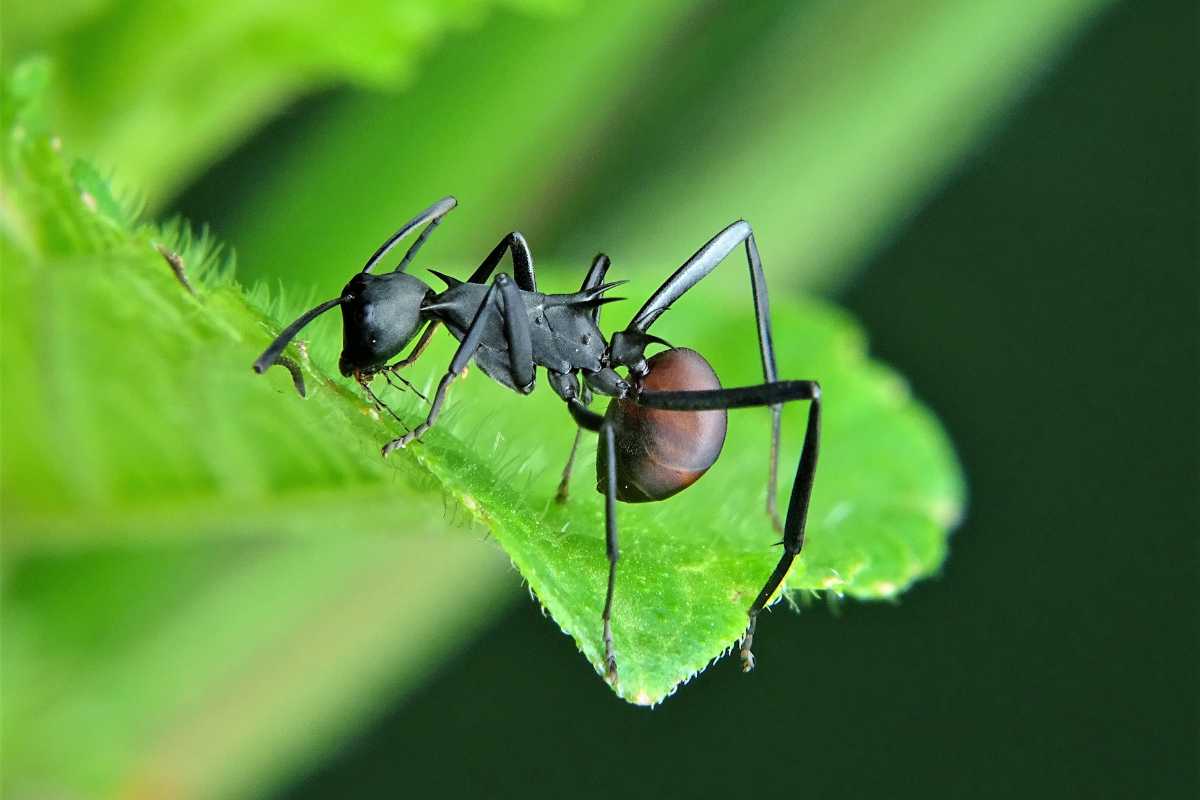
Ants in cucumber plants cause many different problems. Here are some examples:
1. Increases Aphid Population
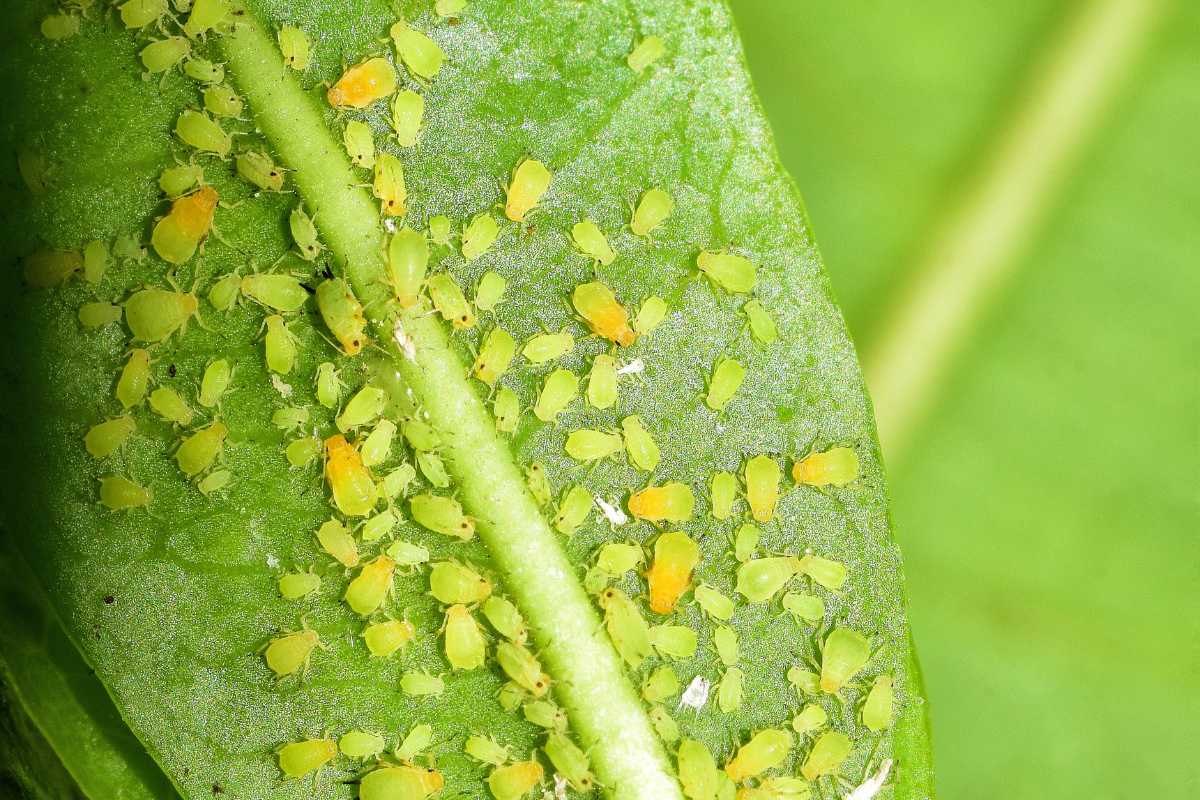
The most common garden ant is the black one, which causes damage because of its association with aphids.
Ants farm aphids as they rely heavily on the substance that they excrete.
By doing this, ants ensure themselves a constant source of sugary honeydew, a major ant attraction around cucumber plants.
In exchange, these aphids get protection from predators, while you get a lot of problems with weak plants.
Aphids can be a big nuisance for cucumbers and other crops and if their population increases too much, you will notice yellowed or curled leaves. They also pierce the stems and leaves of plants, leaving holes.
Old honeydew can also attract microorganisms that form a black, unsightly mold on the leaves.
2. Cucumber Mosaic Virus (CMV)
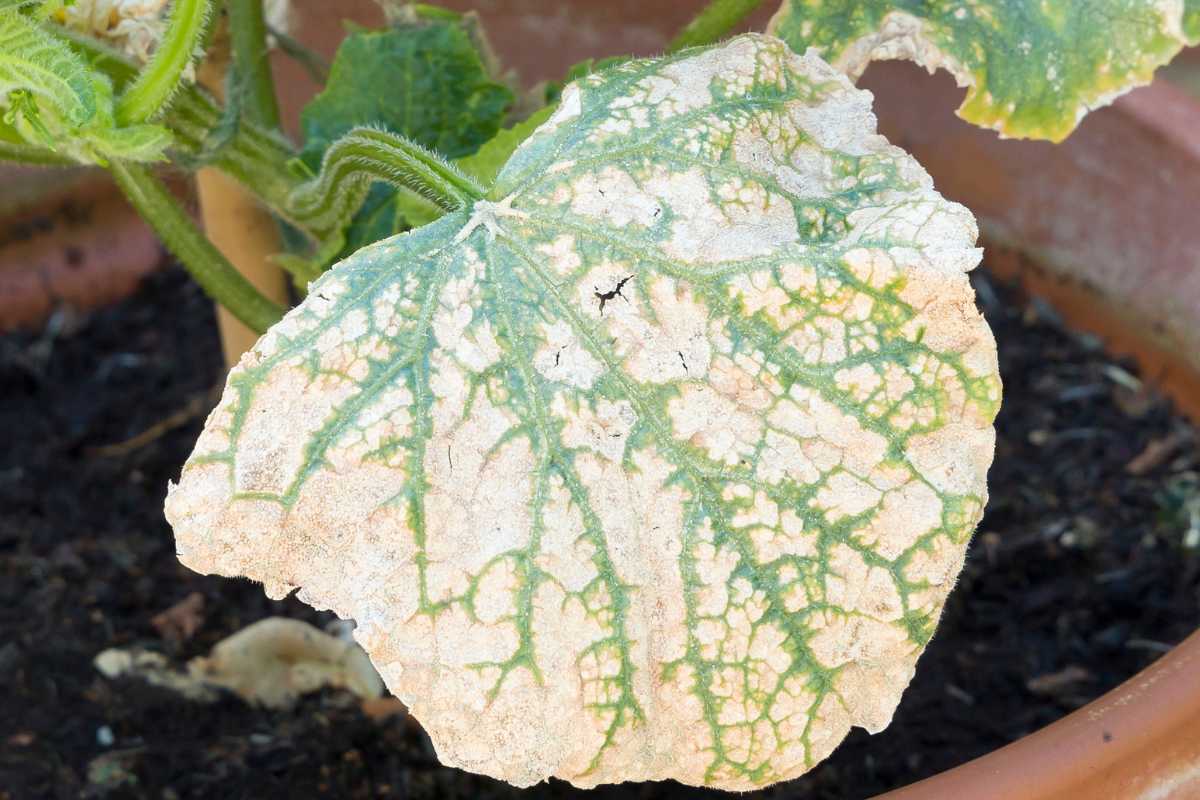
The biggest problem though is that by feeding, aphids can introduce the Cucumber Mosaic Virus (CMV) to your plants.
This virus is easily transmitted through objects so once a plant is infected, it’s easy for it to spread to others when you prune or touch different plants.
Apart from cucumbers, CMV can also affect other species, such as legumes. it is best to destroy diseased plants to prevent the virus from spreading.
You can recognize this illness because your cucumber’s leaves will have a mottled appearance and the most infected plants will be yellowed and stunted.
3. Harmful Ants in Cucumber Plants
Fire ants and leafcutter ants can be a huge problem for cucumber plants because they cause direct damage to them.
Most ants don’t feed from live plants as they prefer other sources of food but fire ants and leafcutter ants are the exceptions.
Another issue with ants is that if they are too many and they nest in your garden, the deep tunnels they dig in the soil can stunt the growth of plant roots, especially of young plants.
Will Ants Eat Cucumber Plants?
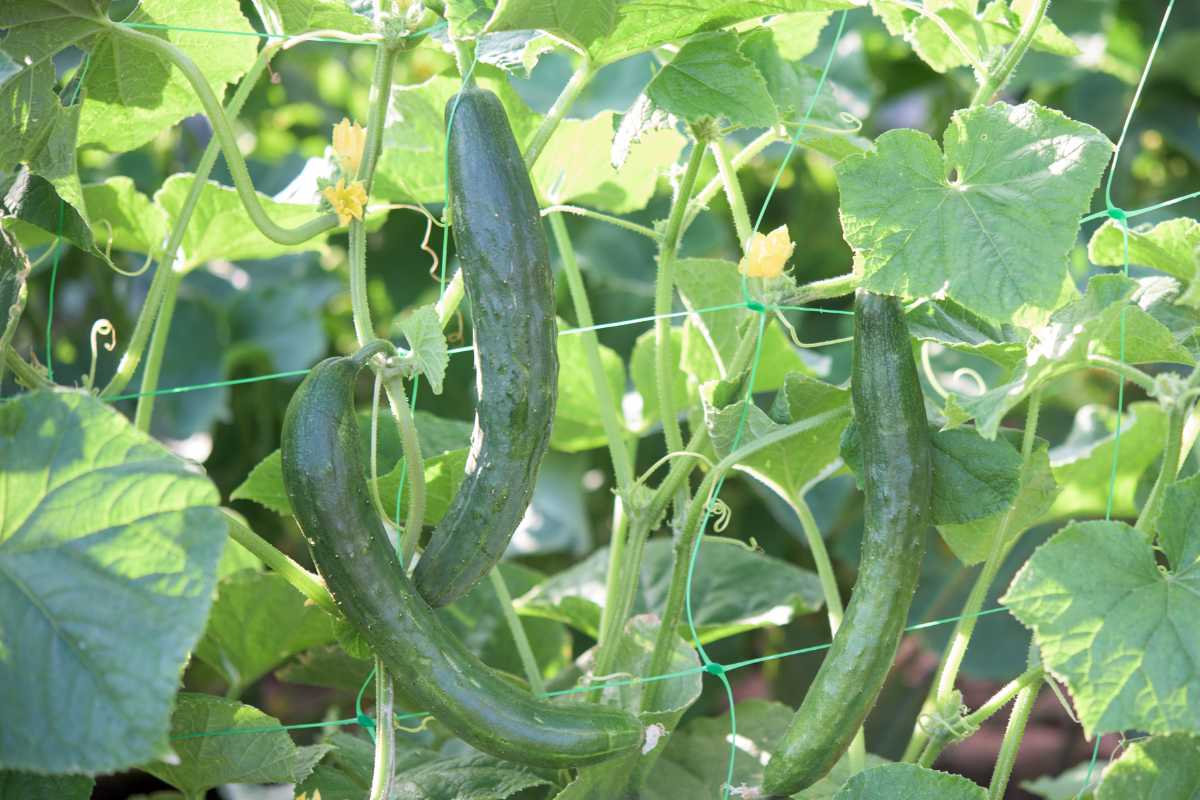
1. Black Ants
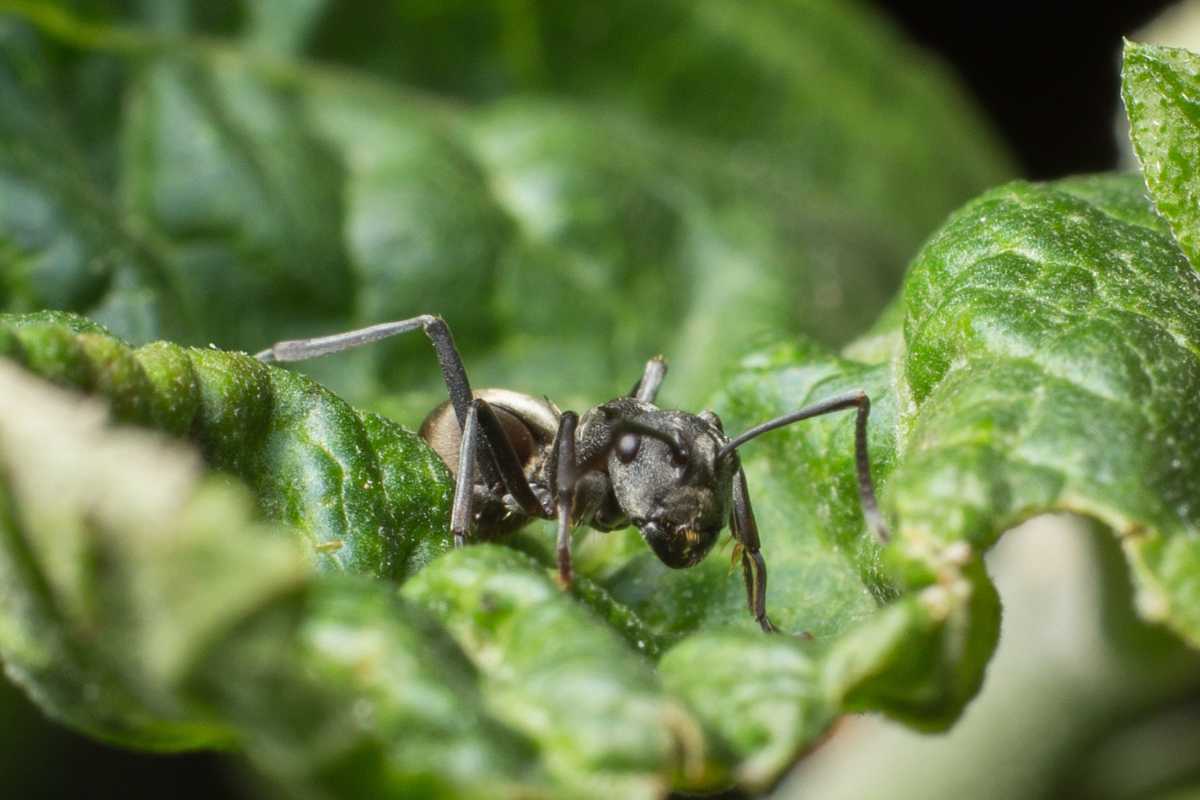
Black ants, known as Argentine ants, don’t feed on cucumber plants, and in fact, they are said to dislike the fruit. Sometimes, cucumber peel is even used as a method to deter them from the garden.
You might see cucumber leaves covered in holes, and crawling with ants, and assume they are eating the leaves.
But they are most likely feeding from the honeydew aphids excrete. You will notice these tiny insects if you look closely enough.
The ones that infest cucumbers are most often green, brown, black, or pink, and they form small bumps underneath the leaves. Scale insects might also infest your cucumber plants and attract ants, but they are much less common than aphids.
2. Fire Ants
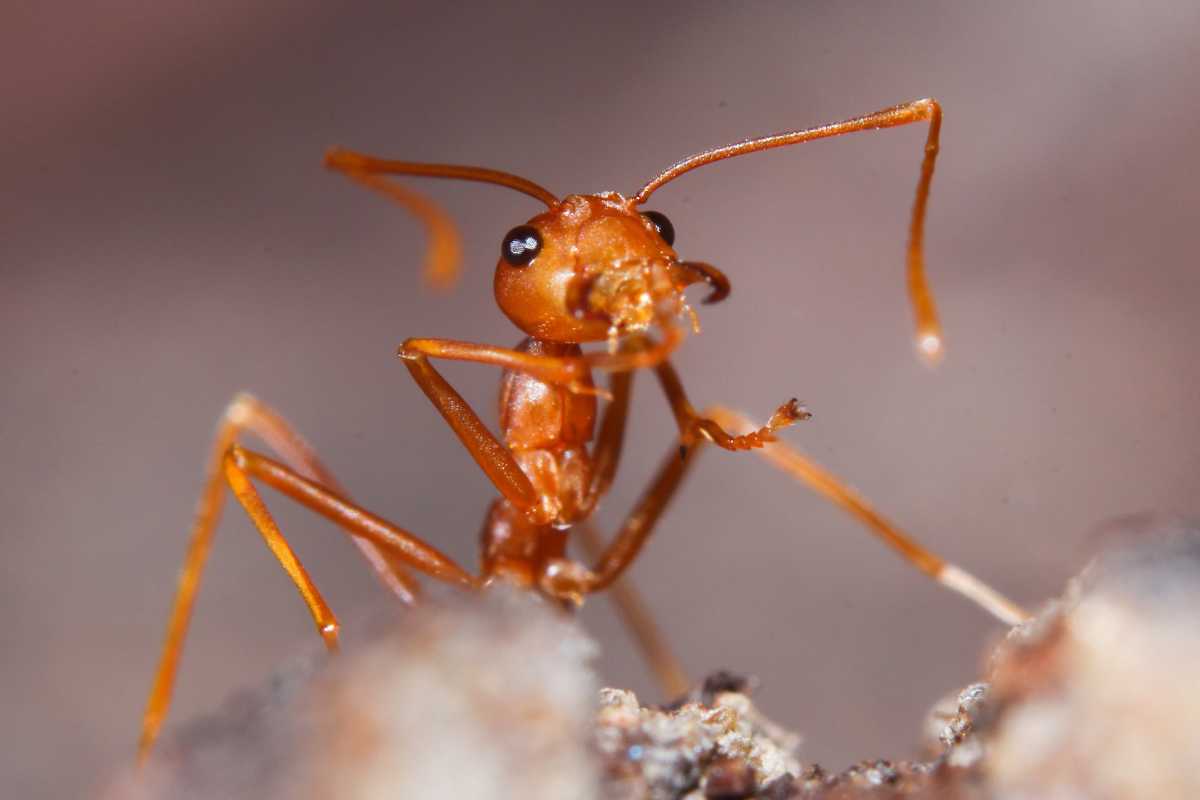
On the other hand, red fire ants are a whole different matter. Red ants usually come in great numbers looking for food. If they can’t find anything more appetizing, they will feed from cucumber plants.
This specie feeds from the most tender parts of plants. They will mostly chew on the stems of young seedlings and transplants, which could die as they are in a very vulnerable stage of their development.
They occasionally even chew on the flowers and stems to drink the sweet sap inside them.
Fire ants can sting if threatened. Their stings are very painful and give you a sensation that is similar to what you might feel when burned by fire (thus the name).
3. Leafcutter Ants
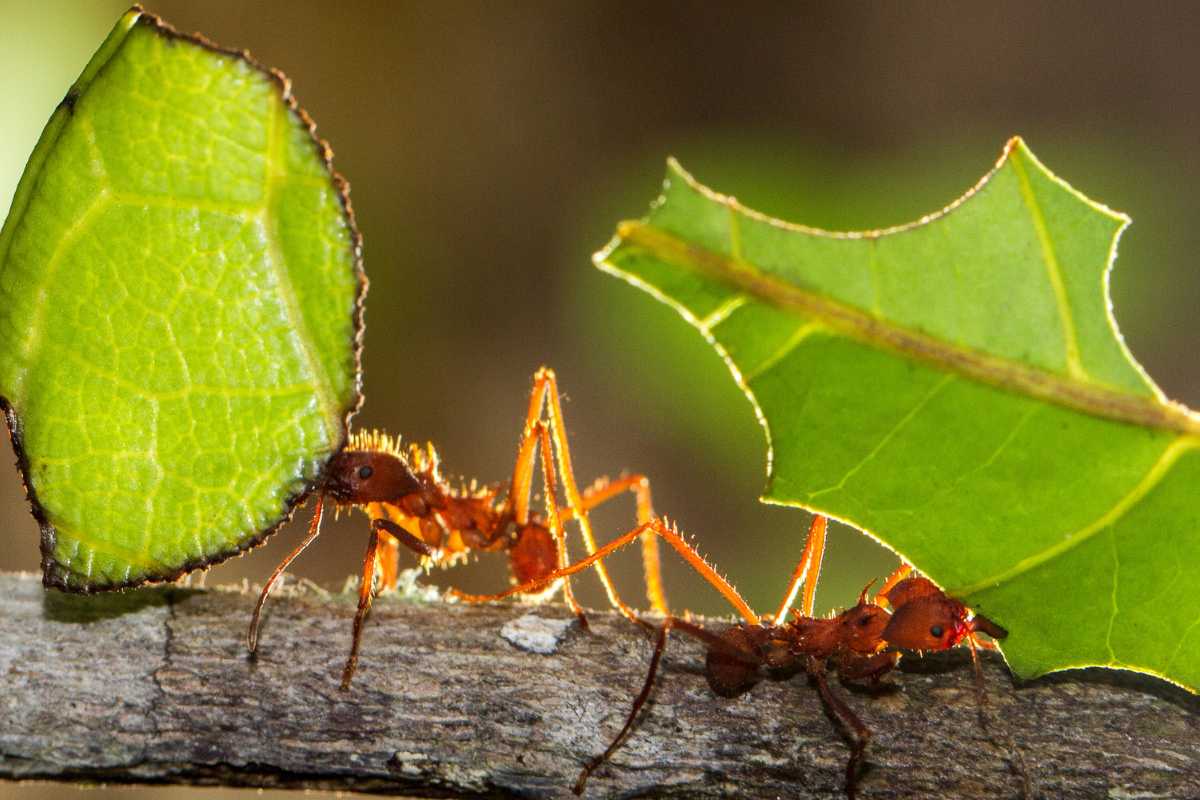
Leafcutter ants can also damage plants.
These ants don’t feed on cucumbers, but they remove the leaves to carry them back to their nest. Leafcutter ants can carry twenty times their total weight of fresh vegetation.
They then use the plant cuttings to grow a fungus which is their main source of food. These ants become a real problem only if their population increases too much.
How Can Ants Help Cucumber Plants?
Ants are beneficial insects that also have positive effects on your cucumber plants and the garden in general. These insects have many advantages, especially the black sugar ants.
1. Ants Pollinate
Because they feed from nectar, ants can help pollinate your cucumber plants.
This doesn’t harm the plants, on the contrary. It even aids their reproduction.
Other pollinators are indeed more efficient, but nowadays they are often scarce, so the plants need all the help they can get.
2. Ants Take Care of Waste
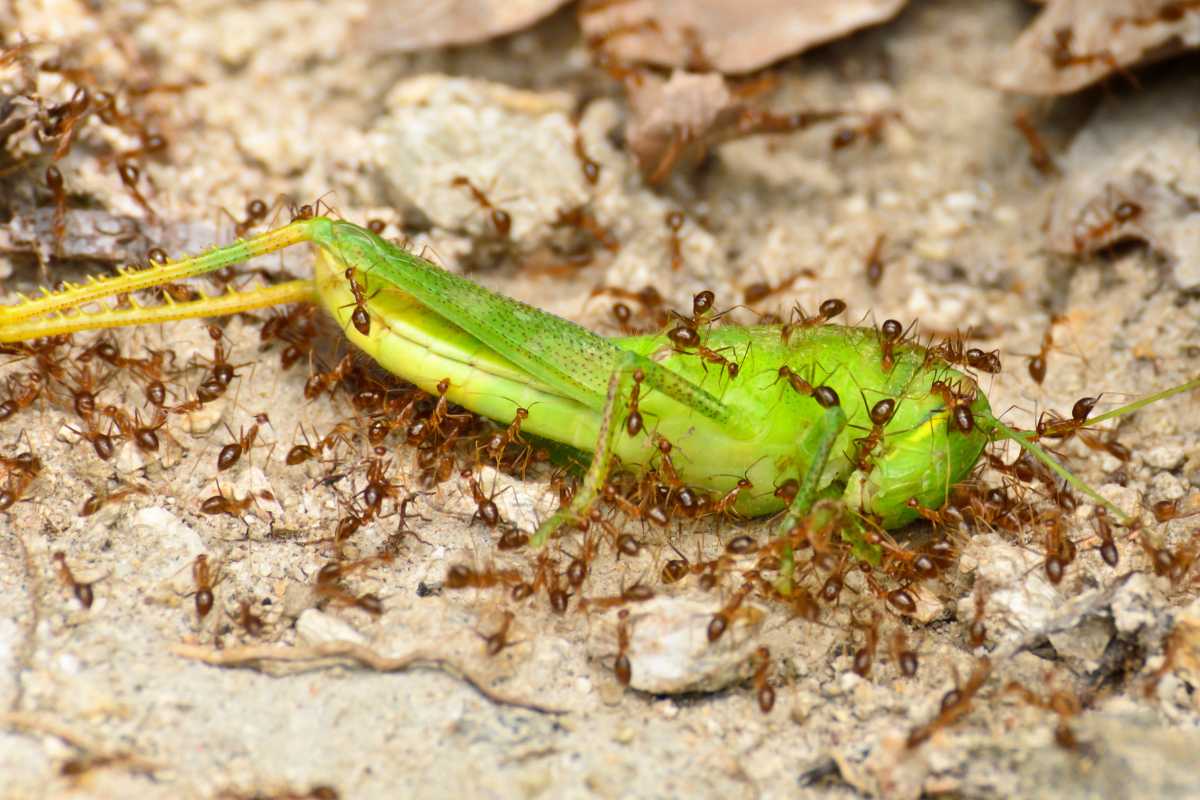
Ants are important decomposers. This is a function that is often overlooked but is essential for the well-being of any garden.
Organic waste would accumulate without organisms that decompose it and enable nutrients to return to the soil. This completes the cycle, from soil to plants, to animals, and back to the soil.
Ants are some of the first decomposers that break down rotten plant material and dead animals so that microorganisms can finish the job.
3. Ants Kill Pests
Ants can be very helpful in protecting your cucumber plants, as they feed on insect eggs and larvae of other harmful insects.
Many bugs that could harm your cucumber plants get consumed by ants in their early stages of development.
4. Ants Aerate the Soil
Ants create a masterpiece of nests underground that allows the soil to “breathe”.
The tunnels and mazes in ant nests allow air and moisture to penetrate the soil more efficiently. This, in turn, allows nutrients and water to get distributed more evenly to your mature plants and encourage their growth.
Best Ways to Keep Ants Away From Cucumber Plants
To identify the approach that you need to take, you must know what type of ant is invading your garden space.
1. Get Rid of Aphids
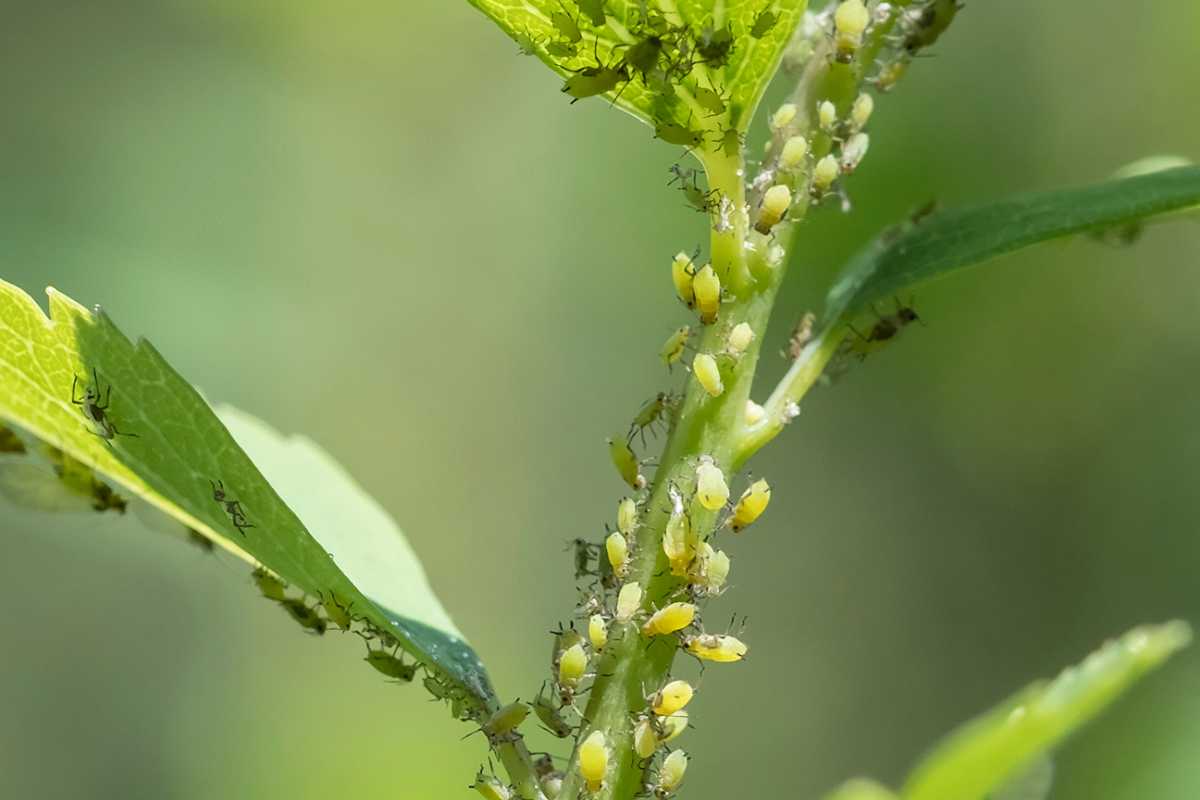
Here are ways to free your cucumber plants from aphids:
- Take good care of your plants. Healthy cucumber plants easily fight off pest attacks and suffer less of the consequence that they bring. Prevention is the key to a healthier garden in general, and it isn’t less true for aphids.
- Employ cultural methods. Some examples that you can try are pruning and planting them with enough spaces in between. This way, you are not creating a habitat that aphids love to thrive on.
- Give your plants a blast of water. This will dislodge the aphids, which move very slowly and won’t be able to get back on the plant.
- Use ladybugs. These beetles are beneficial insect predators and can help you to control the population of aphids. You can either introduce them or try to attract native ones, which is even better.
- If all else fails, you can apply insecticidal soap or neem oil with a spray bottle on cucumber plants.
2. Deter Black Ants
Even if they don’t cause damage by themselves, you will want to work on keeping black ants away while you deal with aphids. Here’s how to deter them:
- Sprinkle cinnamon powder or cayenne pepper. Cinnamon for plants acts as a fungicide. Make a barrier around cucumber plants with these to keep black ants off.
- Food-Grade Diatomaceous earth (DE), is a natural substance that can be spread around cucumber plants and kills ants on contact. Avoid spreading this to cucumber leaves and flowers so you don’t kill beneficial insects such as bees, that pollinate cucumber flowers.
- Bait the ants with a mixture of sugar and borax. Borax is fatal to ants and the sweetness of sugar will disguise it. Ants usually take this to their queen and that ends the colony. Take note that borax can be slightly toxic for children and pets.
- Plant herbaceous plants that along with your cucumber plants. You can choose from lavender, rosemary, and mint.
3. Eliminate Fire Ants and Leafcutter Ants
While other ants can be repelled, it’s best to kill red ants as soon as you notice them. These ants in cucumber plants can spread very quickly and damage your healthy crops. Here are some ways to do it:
- After you have located their colonies, you can pour boiling water directly into the entrances. Do this at night when most of the ants are already inside. You need to do this more than once to completely eliminate them.
- Buy specific baits for fire ants. There are plenty of options in the market these days so you will never run out of options.
Final Thoughts on Ants on Cucumber Plants
Ants on cucumber plants can be both helpful and harmful to the ecosystem. However, an alarming number can be a nuisance to your garden and a challenge to maintaining healthy plants.
An ant infestation cannot be completely avoided given how the ecosystem works. But hopefully, through this article, you have found better ways to manage pests.
The method that you use should be specific to the kind of ant specie you are dealing with. They range from prevention to getting rid of aphids, to killing them off directly.
A bonus method that you can use to remove ants is companion planting. To do this, plant plants that won’t compete for nutrients along with your cucumbers. These cucumber companion plants will help ward off pests as well.
Before proceeding with more drastic measures, try the more natural ones and always evaluate before deciding on the best course of action. Happy Gardening!
To know more about ants, check out these other interesting articles:
- Killing Ants in a Vegetable Garden
- How Do You Get Rid of Ants on Strawberry Plants
- How to Get Rid of Ants on Tomato Plants
- How to Control Ants on Okra Plants
- Why Are There Ants on My Zucchini Plant
- Ants on Squash Plants
Sources:

